
The ISA Space Exploration NASA 70/700 AZ telescope is very much a beginners' telescope package, comprising a 70mm achromatic refractor, manual altazimuth mount, red dot finder, star diagonal, 20mm and 9mm Kellner eyepieces, front-mounted solar filter and smartphone camera adaptor. This comprehensive outfit allows observations of a wide range of celestial objects, from the Moon, Sun and planets through to deep-sky objects. The construction uses lightweight materials throughout, making this telescope suitable as a 'grab and go' instrument with quick deployment at home as well.
The telescope is supplied in a full-colour retail box that enhances the presentation of the outfit as a gift for a budding new astronomer, but there is a glaring error in the printed text in several places. The box erroneously describes the telescope as a 'reflector telescope', which it isn't: it has a two-element lens design, known as an achromatic refractor.
The optical tube has a high-gloss white finish with a red pinstripe around the base of the dew shield. The optical tube and dew shield are made from seamless aluminium with a very matt black internal finish to reduce reflections. To further reduce reflections, a single knife-edge baffle is employed within the tube. In use, the dew shield did a commendable job of keeping dew from forming on the front element of the primary lens.
Esta historia es de la edición December 2023 de BBC Sky at Night Magazine.
Comience su prueba gratuita de Magzter GOLD de 7 días para acceder a miles de historias premium seleccionadas y a más de 9,000 revistas y periódicos.
Ya eres suscriptor ? Conectar
Esta historia es de la edición December 2023 de BBC Sky at Night Magazine.
Comience su prueba gratuita de Magzter GOLD de 7 días para acceder a miles de historias premium seleccionadas y a más de 9,000 revistas y periódicos.
Ya eres suscriptor? Conectar

Could We Find Aliens by Looking for Their Solar Panels?- Designed to reflect ultraviolet and infrared, the panels have a unique fingerprint
Researchers searching for life beyond Earth spend a lot of time thinking about what telltale signs might be detectable astronomically. Forms of unambiguous evidence for the presence of life on another world are known as biosignatures. By extension, techno signatures are indicators of activity by intelligent, civilisation-building life.

Antimatter- In our continuing series, Govert Schilling looks at antimatter, the strange counterpart to most of the matter filling our Universe
Particles and corresponding antiparticles are very much alike, except they have opposite electrical charges. For instance, the antiparticle of the electron - known as the positron - has the same tiny mass, but while electrons carry a negative electrical charge, positrons are positively charged.
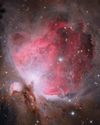
Where Have All The Milky Way's Early Stars Gone?- Our Galaxy has a curious lack of pristine stars
The Big Bang produced a Universe filled almost exclusively with hydrogen and helium; all other elements - what astronomers call metals - were produced by stars, supernovae and everything that happens later. So if you can pick out a pristine star with no metals polluting it from among the billions in the Milky Way, then you are likely to have a star dating from our Galaxy's earliest days.
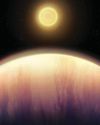
Inside The Sky At Night - Two years ago, exoplanet scientist Hannah Wakeford received some of the first data from the JWST
Two years ago, exoplanet scientist Hannah Wakeford received some of the first data from the JWST. In July's Sky at Night, we discovered what she's learned since then.
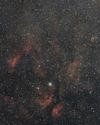
How to stack DSLR data in Siril
Easily combine multiple frames to boost detailin your astro photos
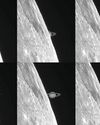
Lunar occultation of Saturn
You'll need to strike a balance on 21 August to capture the Moon covering the ringed planet
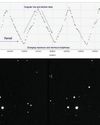
How to plot a variable star light curve
A rewarding project to chart stars that change brightness
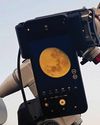
Smartphone photography with a telescope
Mary Mcintyre explains how to get impressive night-sky images using your phone
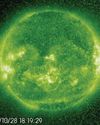
Once-a-century solar storm is overdue
If a Carrington Event struck today it would be catastrophic, says Minna Palmroth
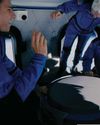
The new era of human spaceflight
There's been a step-change in crewed space missions since the dawn of the 21st century. Ben Evans charts its course and looks ahead to future horizons